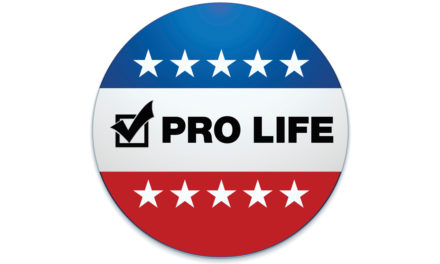A Pennsylvania public school biology teacher was suspended recently for refusing to use the “preferred pronouns” of sexually confused students as required by school board policy. Over 400 people showed up at the next school board meeting to support the teacher, who was reinstated. The board also revoked its pronoun policy after the show of parental concern.
The upset win in the 2021 governor’s race in Virginia by Republican Glenn Youngkin has been attributed to parents’ negative reaction to several high-profile school boards’ treatment of gender ideology, critical race theory, pornographic books in school libraries, and the suspensions of Christian teachers who objected to the policies.
The turning point in the Virginia race likely occurred during a debate between Youngkin and Democrat Terry McAuliffe, who said at one point, “I don’t think parents should be telling schools what they should teach.”
Heading into the November mid-term elections, are parents still engaged? Will educational and parental rights issues determine who wins and who loses?
All signs point to a likely “yes,” according to recent surveys, even those conducted by liberal-leaning organizations.
Democrats for Education Reform (DFER) release a poll in July that concluded likely voters in Congressional battleground districts “no longer trust Democrats over Republicans on issues related to education – a historic and deeply concerning reversal for the Democratic party.”
For example, DFER noted that by a nearly 40-point margin, voters want schools to focus on helping students make up lost ground (66%) rather than focus on issues of race and gender in schools.
A poll conducted for the American Federation of Teachers (AFT) union in late May shows a small Republican advantage on education (39% to 38%) in seven states with competitive elections this year.
The74million.org, an internet media site focusing on education, summarized some of the key findings of the AFT poll.
“By a 32-point margin, participants said they would favor candidates who supported teaching less about race and more about core subjects like math and reading,” The74 reported. “Sizable majorities also said they favored banning trans athletes from competing in girls’ athletic competitions, and banning teaching about sexual orientation and gender identity from kindergarten to third grade.”
But, is education high on the priority list of voters, who historically have been concerned with pocketbook issues like inflation and taxes?
Apparently, yes. Pew Research reported on August 23, 2022 that 58% of registered voters listed education as “very important” to their vote in the upcoming mid-terms, placing the issue in the top six they are most concerned about, even above abortion, immigration and energy policies.
Concerned parents are also voting with their feet. Citing another recent survey conducted by Tyton Partners, The74 reports that “between spring 2021 and spring 2022 there was a 9% drop in families saying their children are enrolled in traditional public schools – a plunge that translates into over four million students. Charters and private schools, meanwhile, saw increases in the survey, as did homeschooling.”
The Harris Poll, in a June 21, 2022, survey conducted for the National Alliance for Public Charter Schools, says education voters could be the new swing voters in the upcoming election.
“Charter schools and parent choice have long enjoyed bipartisan support from lawmakers,” said Nina Rees, President and CEO for the National Alliance for Public Charter Schools. “This poll clearly shows support for education options is stronger than ever among parents, regardless of their political party, with 82 percent saying they would be willing to vote for someone outside their political party if their views aligned on education. The education voter is the new swing voter.”
November 8 is Election Day. Parents, this looks like your year to make your voice heard on education policy. Make your vote count. Vote your values.
As a 501(c)(3) charitable organization, Focus on the Family does not endorse candidates.
Photo from Shutterstock.






